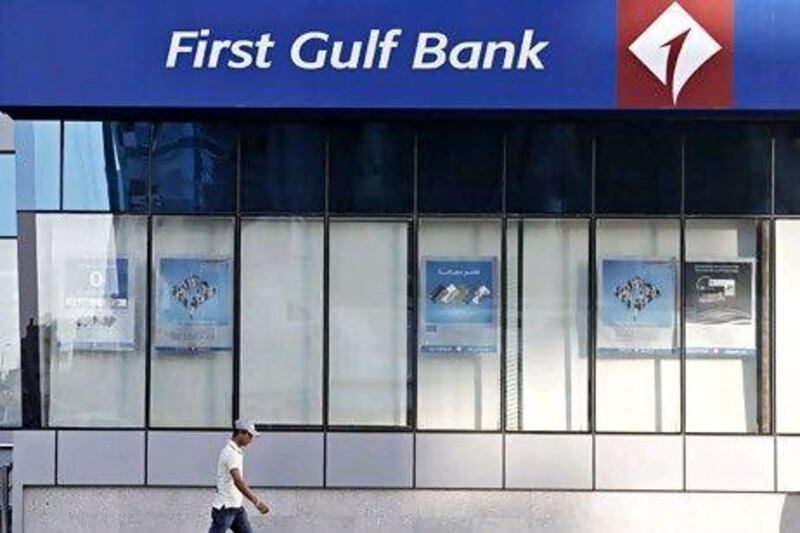First Gulf Bank and Union National Bank generated modest rises in profit during the first quarter because of growing margins on their loan books, even as new lending barely budged.
First Gulf Bank (FGB) reported a 7 per cent increase in net profit to Dh934.7 million (US$254.4m), spurred on by growth in its international business.
The earnings lagged behind analysts' estimates of Dh970m.
Union National Bank (UNB) reported a net profit of Dh471m for the first quarter, an increase of 3.2 per cent compared with the same period last year. The bank's stock price increased 2 per cent to Dh2.98 after the profit beat analysts' estimates.
The two are among the capital's biggest lenders and are sometimes regarded as bellwethers of the Abu Dhabi economy.
Amid slack demand for new lending at home, FGB was looking overseas, said Abdulhamid Saeed, a board member and the bank's managing director.
"First Gulf Bank is actively expanding its geographical footprint in strategic markets," he said. "Our existing international network continues to increase its contribution to our group's net profits."
Bankers have increasingly expressed frustration about the UAE's debt laws, which criminalise bankruptcy and limit the repossession of assets.
Bankers said this hinders the sector's ability to lend and drive economic growth as the economy of the Emirates recovers.
The lack of a functioning federal credit bureau has also been cited as a reason for slack levels of lending.
A tightening of regulations by the Central Bank, intended to curtail the lending free-for-all that existed before the global financial crisis struck, has stymied many banks' ability to lend.
The Central Bank capped the fees that could be charged on personal loans and restricted consumer lending to no more than 20 times the applicant's salary. This year, it has also regulated the amount that banks can lend to individual companies, in an effort to limit the damage that a single company's default can do to banks' balance sheets.
Both FGB and UNB reaped the rewards of historically low interest rates, which allow for a large margin between the bank's costs of borrowing and the amount they can charge to lenders, also known as spread.
FGB's net interest income grew 13 per cent from a year earlier to Dh1.29bn during the quarter.
"Continuation of dampened loans growth and erosion of spreads will certainly not bode well for [First Gulf Bank's] top-line, but we do not expect this quarter to be representative of the full year," analysts at Global Investment House wrote in a research report.
UNB also reported a 18.5 per cent increase in net interest income to Dh536.6m during the same period.
twitter: Follow and share our breaking business news. Follow us





